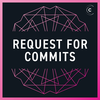Francesc Campoy on GopherCon and understanding nil
In our first show after GopherCon, we are joined by Francesc Campoy to chat about some of our GopherCon experience, understanding nil, and a great variety of interesting topics of interest to the Go community.
Matched from the episode's transcript 👇
Francesc Campoy: It went really well, it was full all the way. That was very interesting, seeing so many people interested in talking about Diversity, and not only people that are members of minorities represented at GopherCon, black people and women, and LGBTQ etc., but there were also a lot of allies that were there to represent and basically to give support. That was very interesting.
We talked about many things. One of the things that I tried to propose and I hope is gonna happen - the same way there was this talk about mining the Go community, and that understands how Gophers do technical things, I was wondering if we could do something similar about who are those Gophers, where are they? Do they live somewhere in the States, in cities where they have meetups, or are they far apart? Do they have kids? Is it easy for them to attend conferences like GopherCon, or do they prefer things like the remote meetups organized by GoBridge? Is that useful for them? That was pretty interesting.
Then we moved into talking about how to make the Go community more approachable. There was a lot of discussion on basically improving the newcomers’ documents that we have right now. I could say they’re not bad, but we could definitely do much better. There were a lot of people talking about how to make those better, how to learn a little bit from the Ruby community. The Ruby community has a lot of funny examples; it is not only about technology, it is also about having fun while learning and things like that, and trying to apply that to the Go community. I think it’s very interesting.
There was also - I don’t wanna say his name wrong, Johnny Boursiquot. He pointed out that it is good to have those materials, but once we have them we need to go out to other communities and teach. He was talking how he’s going to schools that don’t have any technological plan, they don’t have a technical curriculum. And he goes there and volunteers to teach kids that otherwise cannot have access to programming classes, and he teaches that in Go. I think that is amazing, I’d like to see more of that.
I think that both things - having better materials for newcomers and then the Go community ourselves going out to reach into these communities that otherwise don’t have access to it could make our community much better, much more diverse and also much larger and welcoming.








